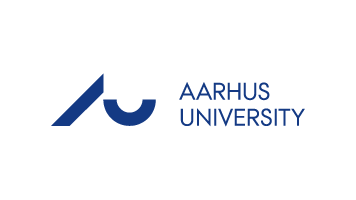
Aarhus University is responsible for defining the labelling-scheme to identify citizens based on their energy consumption, as well as the metrics to monitor changes in behaviour and how fast they are achieved. AU also conducts the international peer-reviewing of the proposed methodology. The planning of citizen research meetings, to be implemented by all the partners, is also AU responsibility.
AU coordinates the establishment of the Local Energy Initiative in Aarhus, including the definition of the business model, the implementation of strategies to ensure participants engagement, and practicalities of the solar PV installation. This will be done in close collaboration with the university climate action plan.
The team takes care of invigorating the individual interventions defined by the Local Energy Initiative and organizing workshops on solar PV installations. Also it takes advantage of the data collected in AURORA and, combining it with its extensive expertise on energy modelling, implement the analysis of energy transition paths for Europe and investigates the impact of behavioural changes and efficiency improvements such as those monitored in AURORA.
Contact:
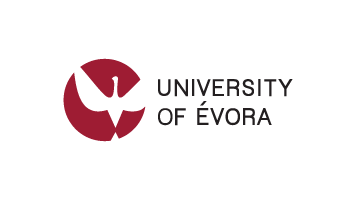
The University of Évora is an European Energy Awareness demonstrator where students and other staff linked to the university – and other stakeholders at the campus – have the chance to monitor their energy-mix carbon footprint and crowdfund a local photovoltaic facility. The university carries out different interventions to help citizens choose more sustainable energy behaviours, while contributing behavioural changes in the community. The University of Évora also contributes to the dissemination and communication of the action, which includes the organization of webinars with key stakeholders in Portugal. The main attribution is the proper exploitation of data linked to solar photovoltaic installations financed by crowdfunding in the Consortium to really contribute to assess the climate impact on energy infrastructures.
Contact:
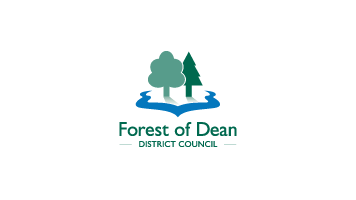
FoDDC contributes expertise and ideas including helping to shape and distribute the online survey, inputting to the near Zero-emission citizen labelling design and periodic citizen researcher meetings. It assists with the co-creation process for developing the App by facilitating local events in the Forest of Dean; ensuring these are well-targeted, promoted and attended.
FoDDC works in partnership with CSE to deliver an innovative Local Energy Initiative which provides a demonstrator for citizen engagement. This includes undertaking research and business model development focused on the installation of PV assets on council-owned buildings/sites including researching legal, planning and community set-up (i.e. establishing a Community Benefit Society) and investment costs and working up outline business models based on preferred community investment and ownership structures. CSE also advises and supports the crowdfunding process and provides technical support to FDDC on specifying and procuring the installation and communicating the project locally.
FoDDC leads on RoadMap development and support energy behaviour interventions for individuals, households and communities in the Forest of Dean.
Contact:
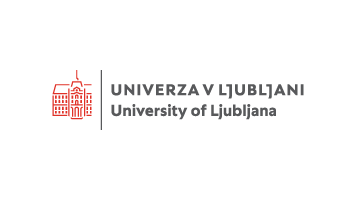
The University of Ljubljana will focus on data acquisition on Slovenian emission factors, as well as modeling and analysis of citizen’s energy behaviours. The demonstrator will allow to monitor and assess drivers and barriers in energy behaviours.
The university is responsible for the creation and continuous monitoring of environmental impacts through big data analysis at three levels: core group participants, extrapolation to the University of Ljubljana and projections for Ljubljana.
UoL is creating an inventory of social and energy communities in Slovenia and across Europe to enable the creation of energy communities with the crowdfunding business model at universities. In particular, at the University of Ljubljana, photovoltaic power plants use different technologies with on-site monitoring and freely accessible information on their performance in the spirit of the citizen science initiative.
A practical workshop with low-cost sensors will be organised for active participants and for further dissemination at the individual level. In the framework of the collective interventions, the analysis of the monitoring data will be used as a seed for the strategic roadmap of the UL energy community.
Contact:
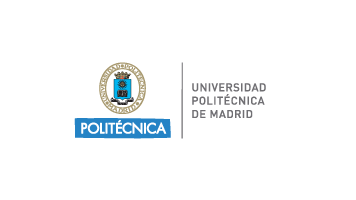
The Technical University of Madrid (UPM) leads the demonstrator in Madrid and the creation of the local energy initiative.
UPM coordinates the project and will be the work package leader for promoting energy behavioural changes through hands-on activities at individual and collective level. UPM will guide the consortium in defining and accomplishing adequate interventions to help citizens becoming “Near Zero-Emissions Citizens”. This will range from those with a defined STEM character where citizens will fabricate individual and collective devices to those involving participative processes to co-create civic local roadmaps and first-hand educational experiences in solar photovoltaic energy.
Another of the main tasks of UPM will be the creation of developing models and algorithms for the provenance-based integral calculation of the citizen energy footprint and ensuring due data management and ethics aspects.
Contact:
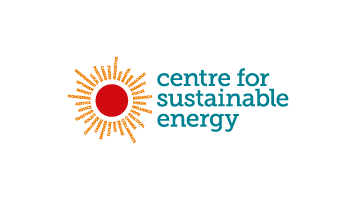
The Centre for Sustainable Energy (CSE) contributes expertise and ideas including helping to shape and distribute the online survey, inputting to the near Zero-emission citizen labelling design and periodic citizen researcher meetings. It assists with the co-creation process of the app by designing and facilitating local events in the Forest of Dean and working with FODDC to ensure these are well-targeted, promoted and attended.
CSE works in partnership with FODDC to deliver an innovative Local Energy Initiative which provides a demonstrator for citizen engagement. This includes undertaking research and business model development focused on the installation of PV assets on council-owned buildings/sites including researching legal, planning and community set-up (i.e. establishing a Community Benefit Society) and investment costs and working up outline business models based on preferred community investment and ownership structures. CSE will also advise and support the crowdfunding process and provide technical support to FDDC on specifying and procuring the installation and communicating the project locally.
CSE supports energy behaviour interventions for individuals, households and communities in the Forest of Dean to help them understand the carbon reduction actions available and how to use the app and technology developed to monitor their own energy use and carbon footprints. And it supports UK-wide dissemination and exploitation of the Aurora Project lessons and tools through its extensive national network of contacts, website, newsletter, enews and social media channels.
Contact:
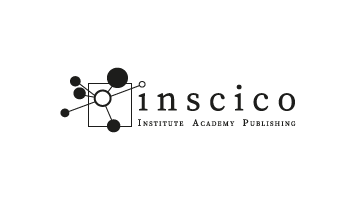
INSCICO leads the development and implementation of the AURORA “Environmental Impacts Monitoring”, including the development of the app. The institute thereby relies on its expertise in open innovation, both in theory and practice. With its experience in designing social science measurement instruments, specific models and algorithms are developed to enable us to us calculate the environmental impact and citizen energy footprint of each participant. This methodological capacity to systematically analyse social behaviour is crucial to foster citizen participation in the AURORA project.
Furthermore, INSCICO contributes to the initial identification of predictors for communities to participate in the awareness demonstrator, and design engagement events to foster community building.
With its core expertise in science communication, the institute will also play a major role in the Exploitation for instance by leading on the developlent of a Dissemination Plan and its monitoring, assisting in designing visualisations, video tutorials, and a variey of other dissemination material, including the project’s online communication strategy.
Contact:

KempleyGreen Consultants was established in 2011 specifically to assist UK public and private organisations to improve success rates in the establishment of European Joint Projects.
KGC is lead beneficiary in Exploitation, Dissemination and Communication and leads partner to coordinate the exploitation, dissemination and communication of the main findings from AURORA.
KGC also develops the idea of energy ambassadors. Key professionals and community leaders are targeted, briefed and encouraged to spread the word about the AURORA project and its key outputs.
KGC identifies and gathers the opinion of 3 international experts from Environmental Regulators and Climate Foundations on the labelling system proposed on the AURORA project. The aim is to validate the labelling system, explore opportunities for wider use of the system beyond AURORA and identify how the labelling system could boost and accelerate the green transition. The finding is presented as a peer review and final report targeted at regulatory policy makers.
KGC provides support for the development the AURORA app develops strategies for continuous engagement.
KGC, through Martin Brocklehurst as a community leader in the Forest of Dean, brings support and advice to help CSE and FDDC in the engagement of the local community.
Contact:

Qualifying Photovoltaics (QPV) is a photovoltaic engineering and consultancy firm specialized in providing high added value services to maximize the profitability of PV investments.
In the project QPV designs and installs the monitoring systems of all the installations: sensorization, data gathering through a dedicated SCADA platform and synchronization of all the data in the cloud.
QPV accomplishes of the quality control of the installations, including the assessment of PV modules and generators, and inverters. It runs the performance analysis of the installations through the PVET platform, reporting, calculation of the main KPIs and detection and diagnosis of operational failures.
Contact:
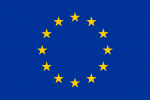
| Piškotek | Trajanje | Opis |
|---|---|---|
| cookielawinfo-checkbox-advertisement | 1 year | Set by the GDPR Cookie Consent plugin, this cookie is used to record the user consent for the cookies in the "Advertisement" category . |
| cookielawinfo-checkbox-analytics | 1 year | Set by the GDPR Cookie Consent plugin, this cookie is used to record the user consent for the cookies in the "Analytics" category . |
| cookielawinfo-checkbox-functional | 1 year | The cookie is set by the GDPR Cookie Consent plugin to record the user consent for the cookies in the category "Functional". |
| cookielawinfo-checkbox-necessary | 1 year | Set by the GDPR Cookie Consent plugin, this cookie is used to record the user consent for the cookies in the "Necessary" category . |
| cookielawinfo-checkbox-others | 1 year | Set by the GDPR Cookie Consent plugin, this cookie is used to store the user consent for cookies in the category "Others". |
| cookielawinfo-checkbox-performance | 1 year | Set by the GDPR Cookie Consent plugin, this cookie is used to store the user consent for cookies in the category "Performance". |
| CookieLawInfoConsent | 1 year | Records the default button state of the corresponding category & the status of CCPA. It works only in coordination with the primary cookie. |
| elementor | never | This cookie is used by the website's WordPress theme. It allows the website owner to implement or change the website's content in real-time. |
| Piškotek | Trajanje | Opis |
|---|---|---|
| _ga | 2 years | The _ga cookie, installed by Google Analytics, calculates visitor, session and campaign data and also keeps track of site usage for the site's analytics report. The cookie stores information anonymously and assigns a randomly generated number to recognize unique visitors. |
| _ga_HZS3ZLRH8Q | 2 years | This cookie is installed by Google Analytics. |